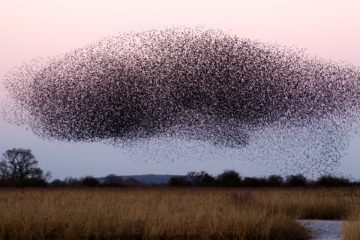by Jochen Szangolies

In last month’s column, I argued for the notion that life does not neatly decompose into individual life-forms—fish, fungi, firs, and humans. Instead, we are all just part of the same life expressed in many bodies, the way the one life of the butterfly is expressed in the two bodies of the larva (the caterpillar) and the imago (the winged form we typically think of when talking about butterflies). The argument wasn’t intended to foster some kind of hand-holding-moment of ‘we’re all in this together’ (not just, at least), but instead, was meant to chip away at what I believe to be two of the greatest obstacles towards meaningful collective action in the face of global existential crisis: locality of concern and despair of scale.
By locality of concern, I don’t merely mean being of the opinion that everything revolves around one’s own particular affairs—although that may be an expression of it. Rather, I mean the notion that one’s reasons for action are mostly or wholly centered on one’s own experience within the world—and may thus be in opposition to that of others. The idea that we’re all part of the same life contravenes this, by for instance making harm to ‘other’ life a form of self-harm—something that’s not just morally wrong, as most might agree it is, but simply irrational, like cutting off a perfectly functional thumb—like the caterpillar trying to get back at the butterfly because it envies its ability to fly.
But I believe that the other factor, despair of scale, may be yet more damaging, and it is this that I’ll be concerned with here. Read more »
